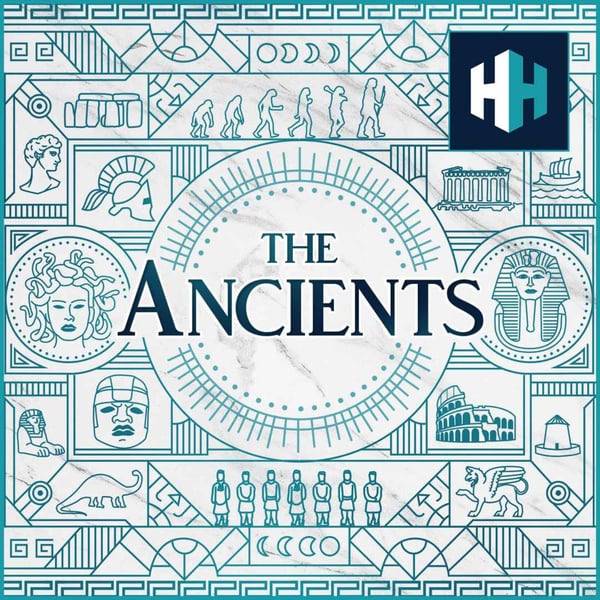Spartacus: Life or Legend?
The Ancients
History Hit
4.7 • 3.5K Ratings
🗓️ 3 December 2020
⏱️ 48 minutes
🧾️ Download transcript
Summary
‘I’m Spartacus!’ In the field of epic film making, the 1960 historical drama ‘Spartacus’, is legendary. Directed by Stanley Kubrick, adapted from the Howard Fast novel by Red Scare blacklisted screenwriter, Dalton Trumbo, and starring Kirk Douglas, Laurence Olivier, Peter Ustinov and Jean Simmons; it is a classic. But how much of the plot has emerged from the true story of a Thracian gladiator and slave who escaped his Roman captors and led an unsuccessful but impressive rebellion against their oppressors? How much of the film’s message was formed by the personalities involved in its creation, and the context in which it was made.
In her own words, Dr Fiona Radford devoted years of her life to the man with the most memorable chin cleft in the world - Kirk Douglas, specifically as Spartacus. Her thesis traced the production history of this film, examining in particular the effect that the turbulent process had on the portrayal of female characters. Having taught at Macquarie University, ANU and the University of Sydney, she currently teaches history at secondary school level, and her conversation with Tristan in this episode is an eye-opener to 1950s film making as well as the legend of Spartacus.
Hosted on Acast. See acast.com/privacy for more information.
Transcript
Click on a timestamp to play from that location
| 0:00.0 | It's the Ancients on History Hit. I'm Tristan Hughes your host and in today's podcast |
| 0:07.6 | we are talking about Spartacus but in particular we are looking at Spartacus through the lens |
| 0:13.3 | of one of the most famous ancient history films ever produced, the 1960 epic historical |
| 0:20.0 | drama Spartacus featuring the likes of Kirk Douglas and Lawrence Olivier. Now to talk |
| 0:26.1 | about this film's remarkable extraordinary production history I was delighted to be joined |
| 0:31.9 | by the brilliant Dr Fiona Radford. Fiona has spent years looking into the history of this |
| 0:38.6 | epic movie and it was great to get on the show to talk through all things Spartacus. Without |
| 0:44.2 | further ado here is Fiona Radford. Fiona great to have you on the show. Thank you so much |
| 0:53.7 | for having me. Now Spartacus and in particular Spartacus the film 1960. This is, could we say, |
| 1:00.8 | one of the definitive, if not the definitive, Sword and Sandalepic of the 20th century? |
| 1:05.9 | Ah, I'm always happy to talk Spartacus up so yes let's say that. And I mean truth or |
| 1:12.0 | note the story of Spartacus itself it's caught people's attention throughout the whole of history. |
| 1:17.3 | It certainly has, I mean it would be a mistake to think that Spartacus was languishing in the |
| 1:22.6 | ancient sources just waiting for a man with a chin dimple to discover him. He's been a popular |
| 1:28.3 | figure. I mean really with the Romans themselves you couldn't say that they forgot about him. |
| 1:32.4 | But then he really takes off in a major way. Really during the enlightenment and then from then on |
| 1:38.5 | he's always at the forefront of someone's mind in the world. And why do we think that? Is it because |
| 1:43.4 | of the underdog idea? This idea of someone rising up against an oppressive regime as it were? |
| 1:48.1 | I think that is definitely a big part of it. He definitely comes across as the underdog, |
| 1:52.1 | someone who stands up for the little guy. But I think it's also because even though the Romans |
| 1:57.7 | didn't forget about him, the material that we're working from that has survived from antiquity, |
| 2:04.3 | it's enough of a blank slate once you take into account the fact that the pro-Roman sources have |
... |
Please login to see the full transcript.
Disclaimer: The podcast and artwork embedded on this page are from History Hit, and are the property of its owner and not affiliated with or endorsed by Tapesearch.
Generated transcripts are the property of History Hit and are distributed freely under the Fair Use doctrine. Transcripts generated by Tapesearch are not guaranteed to be accurate.
Copyright © Tapesearch 2025.

